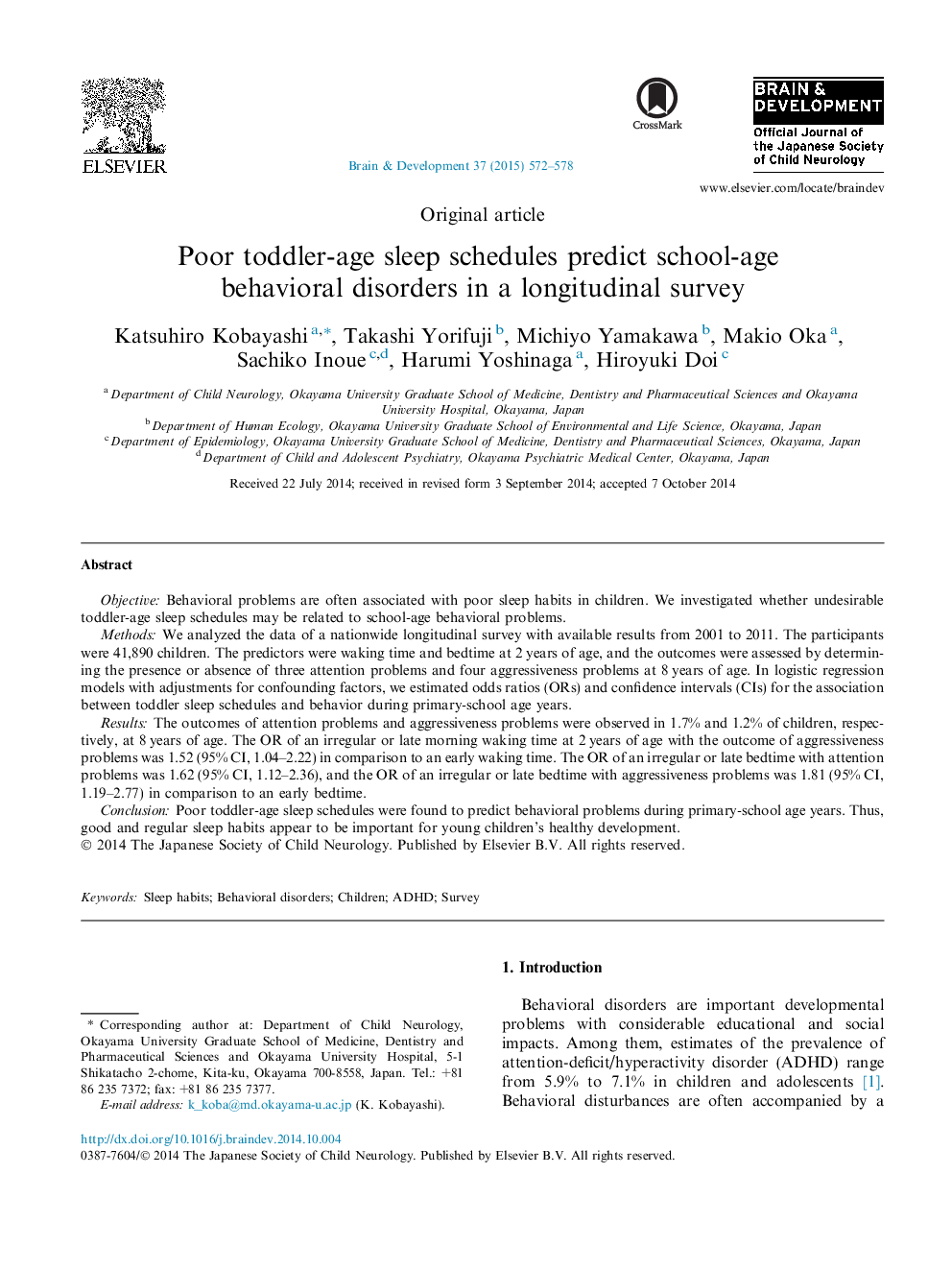| Article ID | Journal | Published Year | Pages | File Type |
|---|---|---|---|---|
| 3036998 | Brain and Development | 2015 | 7 Pages |
ObjectiveBehavioral problems are often associated with poor sleep habits in children. We investigated whether undesirable toddler-age sleep schedules may be related to school-age behavioral problems.MethodsWe analyzed the data of a nationwide longitudinal survey with available results from 2001 to 2011. The participants were 41,890 children. The predictors were waking time and bedtime at 2 years of age, and the outcomes were assessed by determining the presence or absence of three attention problems and four aggressiveness problems at 8 years of age. In logistic regression models with adjustments for confounding factors, we estimated odds ratios (ORs) and confidence intervals (CIs) for the association between toddler sleep schedules and behavior during primary-school age years.ResultsThe outcomes of attention problems and aggressiveness problems were observed in 1.7% and 1.2% of children, respectively, at 8 years of age. The OR of an irregular or late morning waking time at 2 years of age with the outcome of aggressiveness problems was 1.52 (95% CI, 1.04–2.22) in comparison to an early waking time. The OR of an irregular or late bedtime with attention problems was 1.62 (95% CI, 1.12–2.36), and the OR of an irregular or late bedtime with aggressiveness problems was 1.81 (95% CI, 1.19–2.77) in comparison to an early bedtime.ConclusionPoor toddler-age sleep schedules were found to predict behavioral problems during primary-school age years. Thus, good and regular sleep habits appear to be important for young children’s healthy development.
